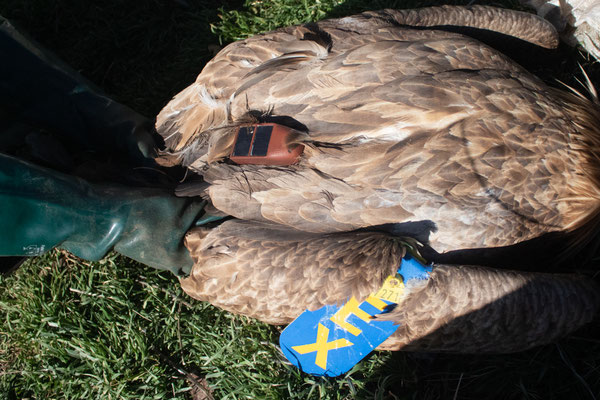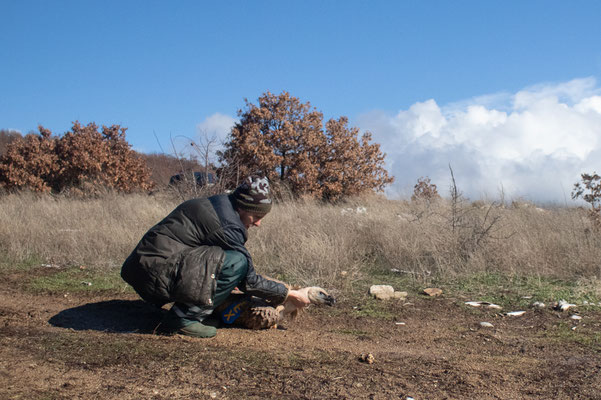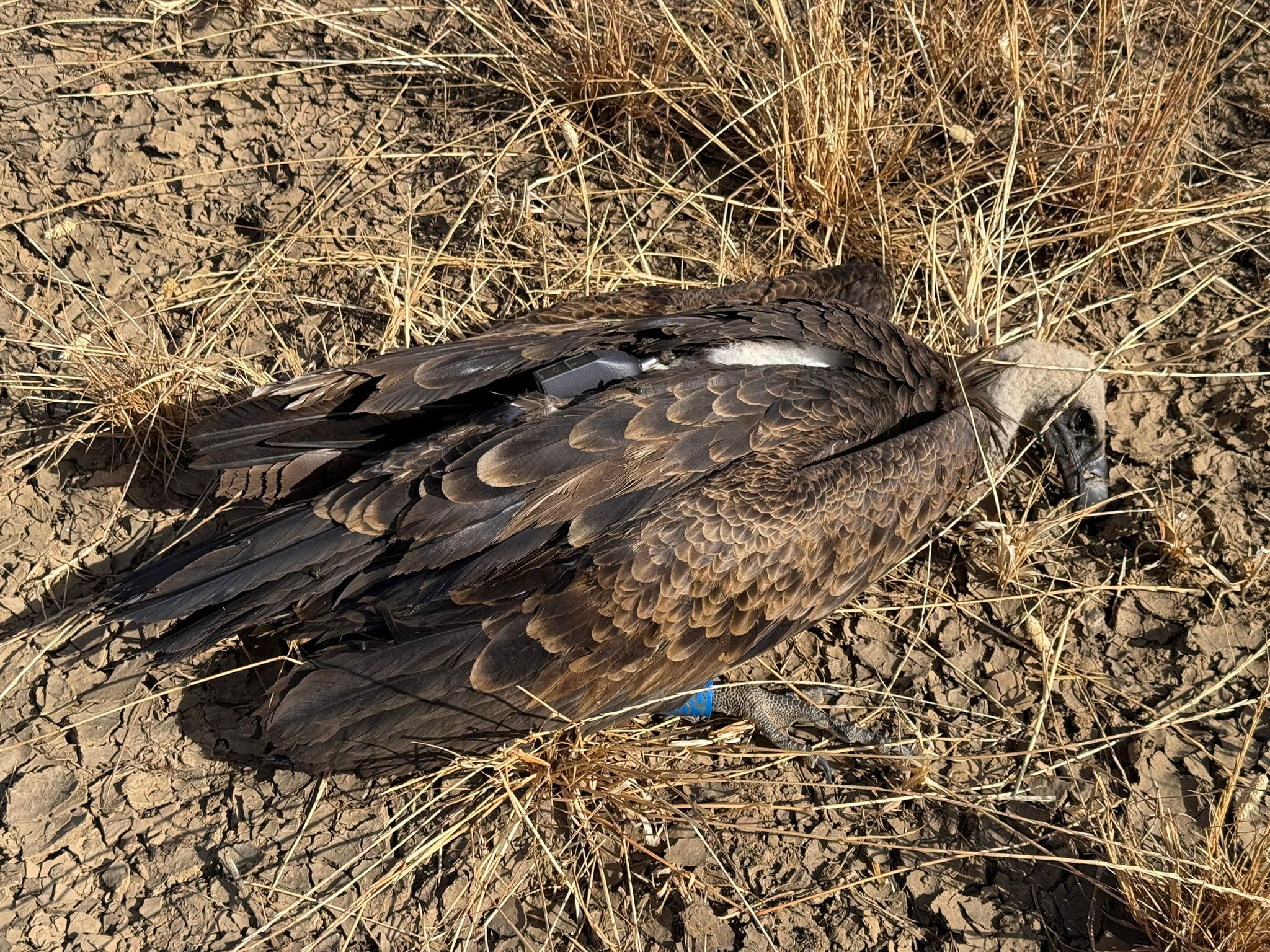
The first Griffon Vulture was equipped with a GPS tag in Bulgaria within the BalkanDetox LIFE project for a very special reason — to help track and tackle illegal wildlife poisoning incidents in the Balkans. GPS technology will enable the project team to find and rescue poisoned vultures quickly while also assisting them in prosecuting criminals to minimize the scale and scope of this harmful practice across seven Balkan countries!
First Griffon Vulture equipped with GPS tag within BalkanDetox LIFE
On Tuesday 2 January 2021, a BalkanDetox LIFE team equipped a Griffon Vulture with a GPS tag in the Kresna Gorge, the first within the new LIFE-funded project. The team from the Fund for Wild Flora and Fauna (FWFF) who tagged the Griffon Vulture named the individual “EXTREME”, not only because of the wing tag EX but also because it was perhaps the most feisty bird they came across so far. It is normal for Griffon Vultures to behave aggressively when captured, but this individual was an exceptional case. “EXTREME” hatched in 2019 based on its feathers’ moulting and is from the Balkan population. The project team aims to tag several Griffon Vultures in the Kresna Gorge since many birds wintering in the region come from Croatia, Serbia and the Republic of North Macedonia.
Local conservationists have been equipping Griffon Vulture and other vulture species with GPS tags in Bulgaria and other Balkan countries for years now, so why is this a big deal?
GPS tracking an innovative tool to track illegal wildlife poisoning
Griffon Vultures are social birds, forage in groups and detect animal carcasses quickly by using their incredible eyesight to follow visual cues. This ability enables them to consume carcasses fast and efficiently, which provides environmental benefits to nature, other wildlife and humans. But, it also means that if a carcass is poisoned, many Griffon Vultures can be wiped out just by a single poisoning incident.
The new BalkanDetox LIFE project, led by the Vulture Conservation Foundation (VCF), aims to combat illegal wildlife poisoning in the Balkans by building capacities and raising awareness. One of the ways it will do so is by utilizing GPS tracking. Suppose a bird’s temperature drops or it has been immobile for long. In that case, GPS tags alert conservationists that something is wrong with the bird, allowing them to swiftly check up on the bird in the field, which could help save vultures and other wildlife affected. Furthermore, if vultures were illegally poisoned, an investigation can launch. By retracing the GPS movements of vultures, the criminal(s) could be identified and convictions enforced, therefore deterring similar instances from occurring again.
To effectively monitor Griffon Vultures and track poisoning, at least five birds need to be tagged in each colony. The project will equip 25 Griffon Vultures with GPS tags in a revolutionary initiative to intensively monitor bird behaviour and tackle wildlife threats such as poisoning in time, adequately surveilling all important vulture colonies across seven Balkan countries. The project will further develop an app that will also incorporate data from previously tagged vultures, enabling all partners to monitor vultures’ movements and behaviour, effectively fighting illegal wildlife poisoning — vultures’ biggest threat!
Stay tuned with the project by following the dedicated Facebook Page of BalkanDetox LIFE.
Balkan Detox LIFE
The ‘BalkanDetox LIFE‘ project aims to strengthen national capacities to fight wildlife poisoning and raise awareness about the problem in Balkan countries. It is a five-year endeavour with a €1.8 million budget, which aims to raise awareness and strengthen national capacities to fight the problem of wildlife poisoning across Albania, Bosnia & Herzegovina, Bulgaria, Croatia, Greece, the Republic of North Macedonia and Serbia. It received funding from the EU’s LIFE Programme, and it is co-financed by the Vulture Conservation Foundation, the MAVA Foundation and Euronatur, as well as by the Whitley Fund for Nature and Environmental Protection and Energy Efficiency Fund for specific actions. Project partners are the Vulture Conservation Foundation as the coordinating beneficiary, and the Albanian Ornithological Society, Association BIOM, Bird Protection and Study Society of Serbia, Fund for Wild Flora and Fauna, Hellenic Ornithological Society, Macedonian Ecological Society, Ornitološko društvo NAŠE Ptice and the Protection and Preservation of Natural Environment in Albania as associated beneficiaries. Furthermore, this project is based on Spanish best practice experience and counts with the support from the Junta de Andalucía and the Spanish Ministry for the Ecological Transition and the Demographic Challenge.






